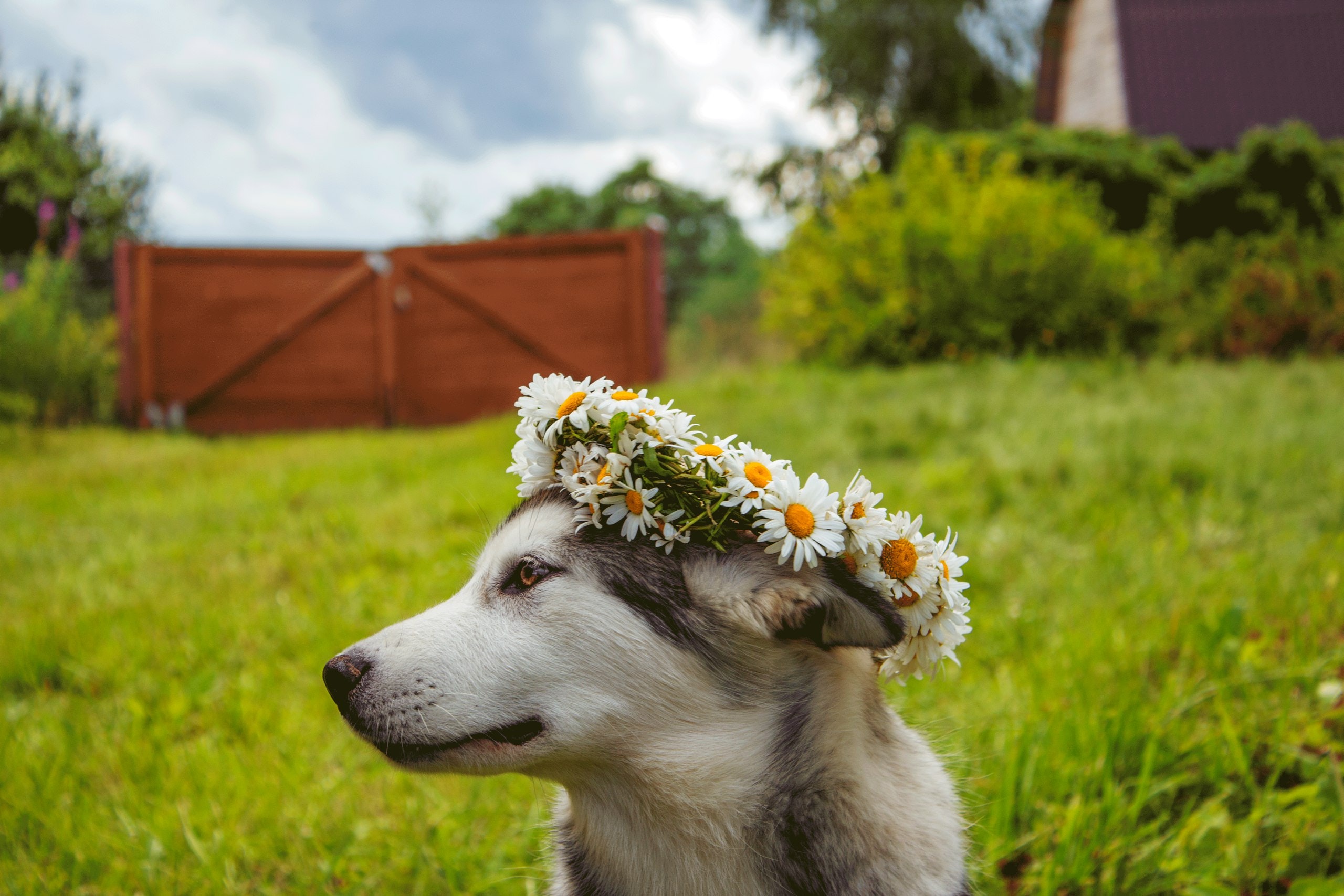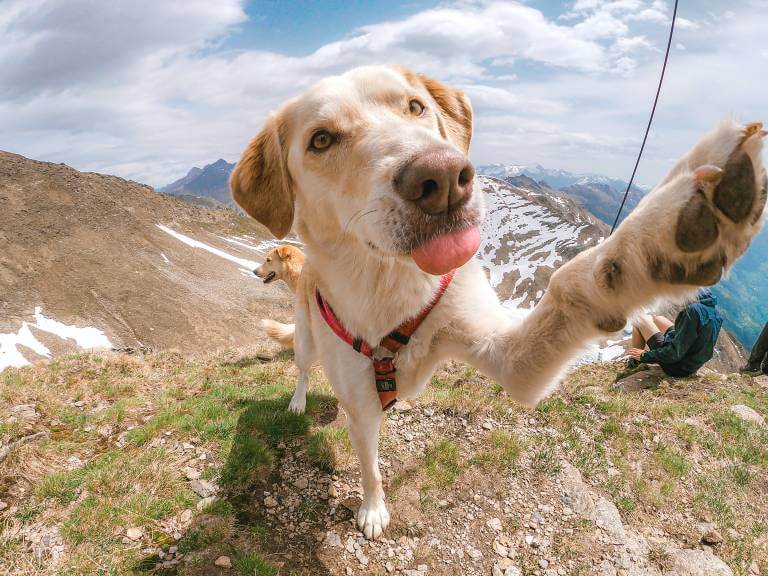Why Do Dogs Drag Their Butt?
Post Date:
December 10, 2024
(Date Last Modified: November 13, 2025)
Dogs sometimes drag or “scoot” their rear along the ground, and the behavior can come from a range of medical, environmental, or behavioral causes. Understanding the anatomy and common triggers helps owners and clinicians decide when evaluation or treatment is needed.
Anatomy of the Canine Rear End
The paired anal sacs sit just under the skin on either side of the anus and store a scented secretion used in normal canine communication. Dogs’ anal glands are located at about the 4 o’clock and 8 o’clock positions relative to the anus, which explains why problems in those small pouches can cause focused perianal irritation and scooting[1].
Each gland normally contains only a very small volume of fluid measured in tenths of a milliliter, and the sacs are surrounded by a thin muscular layer and a rich sensory nerve supply that makes inflammation or distension a sensitive, itchy, or painful sensation[1]. The nearby perianal skin is often thin, heavily haired, and folded in some breeds, creating an environment that traps fecal material and moisture and predisposes to secondary skin problems[1].
What Is Scooting? Defining the Behavior
Scooting describes the action of a dog dragging its perineum along the ground or repeatedly rubbing the rear against surfaces; similar behaviors include rubbing with the paw or rolling, but scooting implies direct contact with the ground. Young dogs and many small-breed dogs often show scooting sooner than larger breeds, with onset commonly under 2 years of age in cases linked to congenital or early-life factors[2].
Clinically, veterinarians look at frequency and posture to differentiate causes: occasional, brief scoots after passing stool suggest hygiene issues, while constant dragging, vocalization, or a hunched posture often signals pain or active infection and warrants prompt exam[2].
Anal Gland Problems
Impaction of the anal glands is one of the most common medical reasons dogs scoot; when the ducts plug, secretions accumulate and create pressure, irritation, or infection that triggers scooting and scooting-related behaviors[3].
Abscessed glands can produce local swelling, pain, and a foul odor, and systemic signs such as fever at or above 103°F (39.4°C) may be seen if infection spreads beyond local tissues[3]. Simple, noninfected impactions are often relieved by manual expression performed by a trained clinician or groomer, whereas infected glands may require a course of systemic antibiotics and, if recurrent, surgical options such as gland excision[3].
Maintenance expression or monitoring schedules commonly recommended for dogs with recurrent impaction are every 4 to 6 weeks until the underlying issue is addressed, then individualized based on response and comfort[3].
Parasites and External Irritants
Tapeworm infection can cause intense perianal itch because egg-containing segments are often seen around the anus; the segments are typically white and resemble small rice grains about 1/8 to 1/4 inch (3–6 mm) long when visible on the coat or feces[4].
Fleas and flea-allergy dermatitis remain frequent causes of generalized irritation that can concentrate at the rear, and heavy flea burdens may be visible as hundreds of tiny, moving insects or as dark flea dirt in the coat during a quick check; treatment involves appropriate environmental control and veterinary-approved topical or oral products[4].
Other external irritants such as lice or contact with household chemicals and grooming products can produce local pruritus; identification and elimination of the irritant plus targeted topical therapy typically reduce scooting behavior[4].
Skin Conditions and Allergies
Atopic dermatitis and food-related allergic dermatitis are common causes of chronic perianal itching and secondary infections in dogs, and many affected animals show fluctuating signs that worsen with environmental exposure or dietary triggers[3].
Contact dermatitis from bedding or topical products can also produce focal perianal inflammation, and open, moist lesions may progress quickly to acute “hot spots” that are intensely itchy and painful; topical antiseptics and anti-inflammatories are often used while the underlying allergy plan is worked out with testing or elimination diets[3].
Hygiene, Grooming, and Anatomical Factors
Long-haired breeds and dogs with heavy perianal fur are prone to fecal matting that traps stool against skin and provokes scooting, so routine trimming or sanitary clipping around the anus is an effective preventive measure for many owners[1].
Folded or pendulous perianal conformation creates microenvironments that retain moisture and debris; keeping the area clean and dry, and inspecting for early redness or matting at least once every 1 to 2 weeks for predisposed dogs, lowers the risk of irritation[1].
Behavioral Causes and Learned Scooting
Some dogs learn that scooting elicits immediate attention, and in such cases the behavior can be maintained by human reinforcement even after the original medical trigger resolves; attention-seeking explanations should be considered when physical causes have been reasonably excluded[4].
Boredom, stress-related compulsive grooming focused on the rear, or repetitive behaviors from confinement can create a cycle of itch and rubbing; environmental enrichment, consistent exercise, and behavior modification plans are typical first-line approaches for nonmedical scooting[4].
Serious Medical Conditions to Rule Out
Perianal and anal sac tumors, while less common than impaction, can present as firm masses, persistent discharge, or bleeding and require prompt surgical assessment; certain perianal tumors have a higher incidence in older animals, particularly those over 7 years of age in published case series[5].
Hernias near the perineum or neurologic conditions that reduce perineal sensation can alter posture or stooling behavior and lead to scooting; advanced diagnostics such as imaging or neurologic examination may be required when basic evaluation is unrevealing[5].
How Vets Diagnose the Cause
Veterinary evaluation typically begins with a focused physical exam that includes palpation of the anal sacs, digital rectal exam when appropriate, and inspection of the skin and coat for parasites or foreign material[1].
Diagnostic testing is targeted: fecal flotation or antigen testing is used for parasite detection, skin scrapings and cytology evaluate for infections or inflammatory cells, and biopsy or imaging such as ultrasound or radiographs may be recommended when masses or deeper disease are suspected[1].
Treatment, Home Care, and Prevention
Treatment depends on the cause: impacted but noninfected anal glands may be relieved by expression, infected glands require systemic antibiotics and often analgesia, and recurrent or neoplastic disease might require surgical options such as anal sacculectomy[3].
For parasite-driven itching, a single or series of deworming doses may be necessary; for example, praziquantel is commonly used against tapeworms following label directions from a veterinarian or product insert[4].
Dietary fiber supplementation can help dogs with soft stools and recurrent impaction; typical ancillary fiber additions range from 1 teaspoon to 1 tablespoon per day of psyllium husk for small dogs, adjusted under veterinary guidance, and major changes should always be discussed with the clinician[4]. When fluid therapy or other clinical formulas are required, maintenance fluid rates are commonly expressed as approximately 60 mL/kg/day in hospitalized animals, tailored to the individual patient’s needs[4].
- Keep the perianal area trimmed and clean, especially in long-haired breeds; check weekly for matting or debris.
- Control fleas and other ectoparasites with veterinary-approved products to reduce secondary dermatitis and scratching.
- Provide fiber-adjusted diets or supplements under veterinary direction if stool consistency is consistently soft or watery.
- Seek veterinary evaluation if scooting is frequent, accompanied by pain, bleeding, swelling, or changes in appetite or behavior.
| Cause | Typical Signs | When to See a Vet |
|---|---|---|
| Anal sac impaction | Odor, scooting, local licking | Within days if persistent or painful |
| Tapeworms | Rice-like segments, perianal itch | Routine visit for deworming |
| Flea allergy dermatitis | Generalized itching, flea dirt | Prompt, for control and comfort |
| Masses/hernia | Firm swelling, bleeding | Urgent surgical evaluation |
Sources
- merckvetmanual.com — Clinical information on anal sac anatomy, examination, and common perianal problems.
- vcahospitals.com — Client-facing descriptions of scooting behavior, breed patterns, and diagnostic considerations.
- wsava.org — Guidelines on dermatologic disease, anal gland infection management, and related care.
- aaha.org — Recommendations on behavior, parasite control, dietary management, and clinical fluid rates.
- avma.org — Information on perianal tumors, hernias, and guidance on when advanced diagnostics are indicated.






